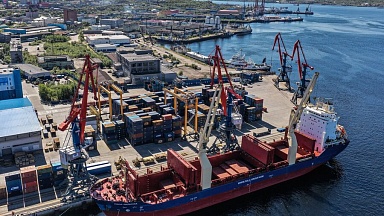«We generally advise our customers to carefully examine their inventory strategy and, if necessary, adjust it,» DHL Group said in emailed comments, adding it was able to provide alternatives to customers such as air freight or rail.
DHL Group does not operate ships but it uses them to transport containers. The German company offers planes, trains and trucks to move goods globally.
This has become trickier since shippers such as Maersk and Hapag-Lloyd have recently rerouted ships away from the Red Sea — the shortest route from Asia to Europe via the Suez Canal — after vessels have come under attack from militants.
German retailer association HDE, however, does not forecast any visible bottlenecks in the short or medium term, it said on Monday, pointing to more resilient supply chains that have been built up in recent years.
«For this reason, empty shelves or price increases are not to be expected.»
This chimes with Germany’s logistics association DSLV, which does not expect major repercussions for the German economy, for example on consumer prices, citing the currently «very low» freight rates from Asia to Europe.
While acknowledging there would be delays in deliveries, DLSV said supply chains were not expected to break down as they did two years ago, when the global economy was still feeling the impact of the coronavirus pandemic and the start of the Ukraine conflict.
«Freight forwarders, shipping companies and retailers have learnt from the past. Maritime supply chains are now more diversified and resilient,» DSLV said. (Reporting by Christoph Steitz, Matthias Inverardi and Rene Wagner; Editing by Miranda Murray and Susan Fenton)



